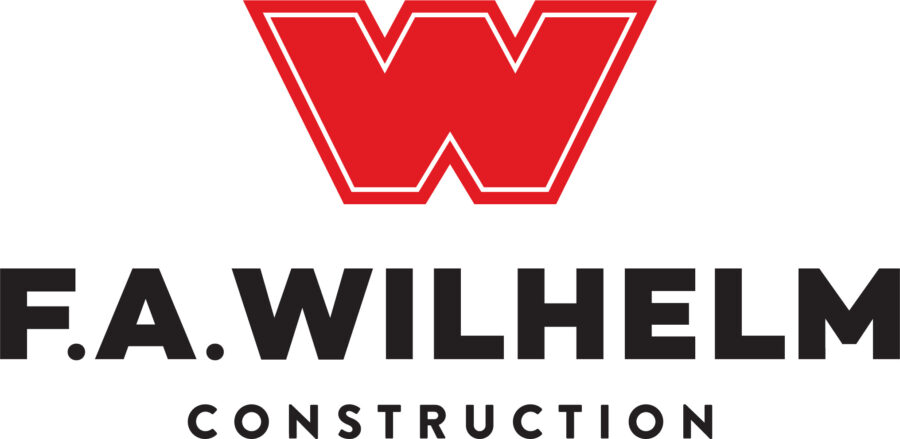By Eric Salazar, The Clarinet Guy
If no one knows you exist, no one can hire you. I first had this epiphany as a young twenty-something struggling to pay my bills.
Coming from a musical background, I was rigorously trained in the technical skills of my profession. I used to think that all I needed was to be the very best at what I do. Guess what? When I was fresh out of school, I was really good… and I never got hired for anything.
The piece of the puzzle I was missing was Networking – expanding the volume and depth of connections, while informing the desire to work together. Networking was something I knew I should be doing, but I was honestly scared of talking to people. Plus, who doesn’t want to just play clarinet all day?
Well, in order to do business with a community, you have to be present in that community. I finally got over the fear of Networking by including preparation time for my introverted self. What used to feel scary to me became quite simple: find people, prepare to communicate, communicate, and follow up.
After simplifying the process into four steps, and building in time for preparation, I found I had the tool I needed to grow my business. Here’s the breakdown.
Find People
The guiding question you need to ask yourself as you seek to expand your network is: Who is doing the kind of work that I want to do more of?
This may seem counterintuitive because many of these people could be classified as your competition. The truth is: interfacing with people in your industry, whether competitors or collaborators, will inevitably lead to more connections. These people can be found through intentional research and communication.
To find more connections, you’ll want to identify the key terms of the work you want to do more of with a variety of broad language, geographic language, and technical terminology.
Broad language might mean big picture terms like the title of the profession itself (for me, it’s music), career titles (like director), or names of tools (like CRM software).
Geographic language is all about where you want to do business, try to find a balance of places you are already known vs. areas you would like to expand into. Examples of this might be names of neighborhoods or names of towns: Broad Ripple, Zionsville, or Mass Ave.
Technical terms vary depending on the profession, but you know these really well. Here is where you can get hyper-specific. For me, technical terms could be: clarinet, composer, or public speaker. Pro-tip: try to come up with synonyms (or slightly more broad terms) for your technical terms. This will help you converse and connect with folks who might be the friend of a friend. For me, I might replace “composer” with “music writer” or “public speaker” with “speeches.”
Once you’ve identified your key terms, it’s time to research and communicate. Search online with these terms and hunt for contact info. Once you have it, it’s time to take the plunge and reach out. My number one go to line is to say (or write, if over email), “I see you as someone who is successful doing the work that I also enjoy doing, and I would love to ask you for some advice. Would you be willing to meet me sometime in the next few weeks?”
This may feel intrusive, but the reality is that most people like to be treated as an expert. Most people also like helping others, especially if the stakes are low. If someone doesn’t want to meet with you, they will most likely just not respond. If someone has a truly expressive negative reaction and lashes out at you, then don’t worry. You don’t want to work with or learn from someone who yells at people for asking for advice.
How to Network
Now that you’ve got a meeting set up with people who are doing the work you want to do more of, it’s time to talk about preparation. Maybe you are meeting someone for coffee, visiting their office, or attending a conference. Regardless of the situation, the preparation step is important for introverts. Just like any other skill, Networking is one that can be refined and requires practice.
Ways to Prepare
A few strategies you can use to prepare for a conversation are: make a cheat sheet of questions you want to ask, make a bullet point list of the details of your work, and practice speaking out loud in the mirror.
I tend to prepare two different kinds of questions, generic questions and specific questions. My generic questions are things I can ask anyone if there is a lull in the conversation. Examples of these are:
- Where did you grow up?
- What project are you most excited about right now?
- What’s your favorite memory of your career?
More specific questions look like this:
- I see you did [this project], what was that like?
- I have been thinking about pursuing [this opportunity], and I know you have done this before, do you have any tips for me?
- I’m feeling ready to take the next steps in my career in the field of ____, but I am unsure what to do. Do you have any advice for me?
You will also inevitably have to talk about yourself and your projects as well. This is the part that can be challenging for introverts. I recommend writing down the mission of your work, any logistical details that come to mind, and also technical information you like nerding out about.
I also strongly recommend practicing asking your questions and talking about your work. This can be done by talking to a mirror or a trusted companion. As silly as it sounds, I’ve found that if I don’t practice I stumble over my words and get freaked out when I hear myself speaking.
What to do In-Person
Honestly, the best thing to do once you are in conversation is to just be yourself. Talk like how you normally talk, eat what you normally eat, and drink what you normally drink. It sounds simple, but the reality is that you will face problems down the road if you are presenting a character that isn’t true to yourself.
I learned this the hard way, by acting overly excited about a genre of music I wasn’t passionate about. Did I get some gigs from the person I talked to? Yes. Did I get to travel to Chicago to perform? Yes. Was I happy or well-compensated? Absolutely not. It felt so inauthentic the whole time, and the work I was doing was actually moving me farther away from my goals. Being yourself will pay dividends and prevent you from engaging in forms of work that move you backwards.
Another thing to keep in mind while you are meeting people is, no matter how scary it seems, be sure to ask for help. It’s tough being vulnerable, but as long as your intentions are pure people will be willing to help you. Lastly, be sure to express gratitude to the people who are helping you. No matter how the conversation goes, thank people for their time, their willingness to connect, and for any advice they gave.
Don’t Forget to Follow Up
The final step in the process is the most important one. For some reason, though, this is the step that most people seem to skip! Never underestimate the power of following up with people that you felt a connection with. Following up keeps you on their radar and reminds them of how you can help each other. Especially if you meet someone at a conference, where we meet dozens of people, following up is a way to stand out.
It doesn’t have to be complicated, either. A simple follow up works great. Here is my go to: [person’s name], thanks for meeting with me to talk about [a couple things you talked about]. I really enjoyed what you had to say about [something they said]. I would love to stay in touch about [the form of work you want to do more of]. Thanks again for your time!
Following up is powerful, and I don’t understand why more people skip this step. Pro-tip for people you felt a considerable connection with: plot out bi-monthly events on your calendar to check in with your contact. This will keep you top of mind, maintain the connection, and heighten your chances of getting more work.
Are you an introvert, or do you have introverted employees? I also present workshops, and help people realize their Networking potential! Feel free to reach out to me or connect on LinkedIn. Additionally, follow me on social media (@theclarinetguy) or on Spotify (Eric Salazar).



